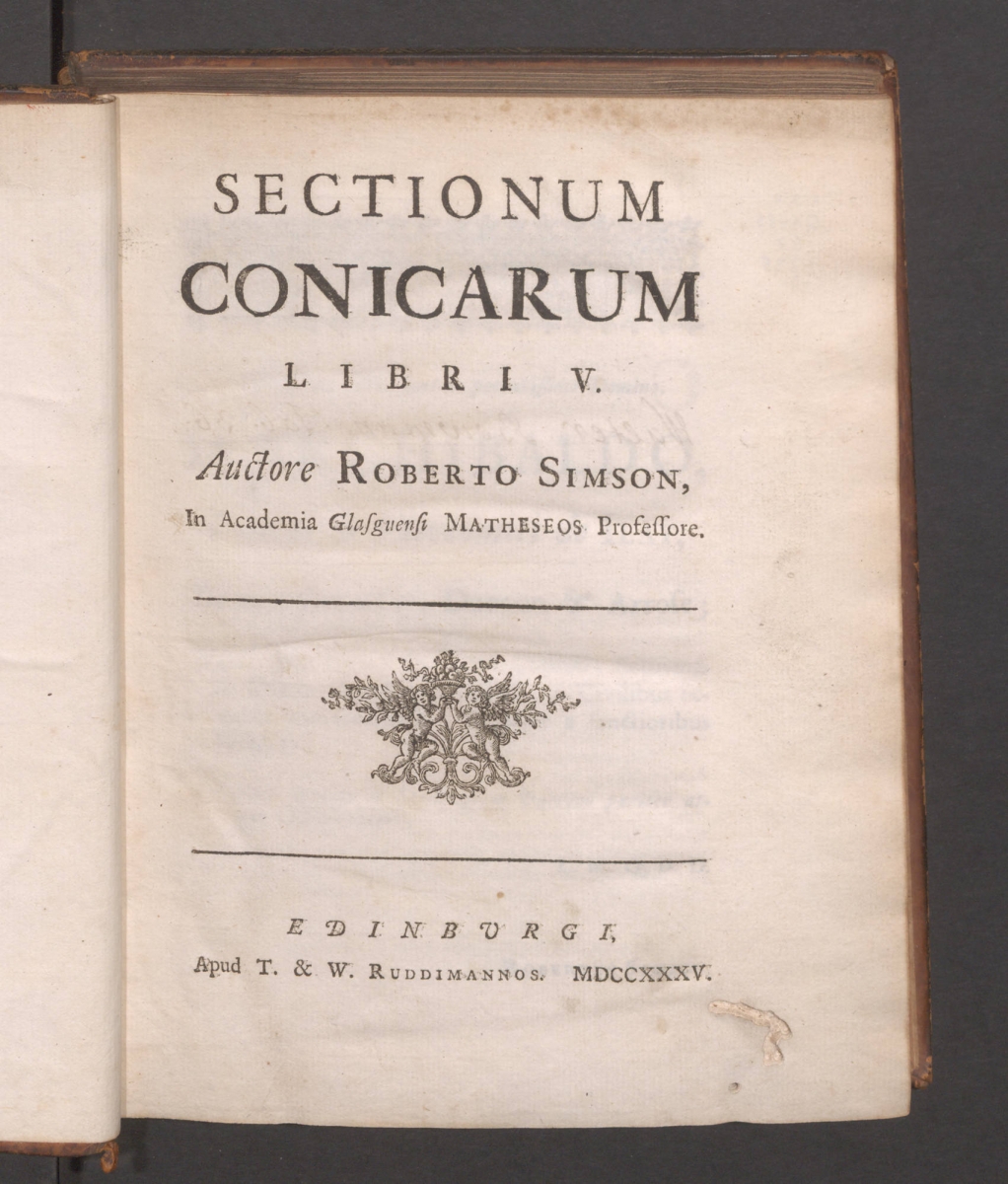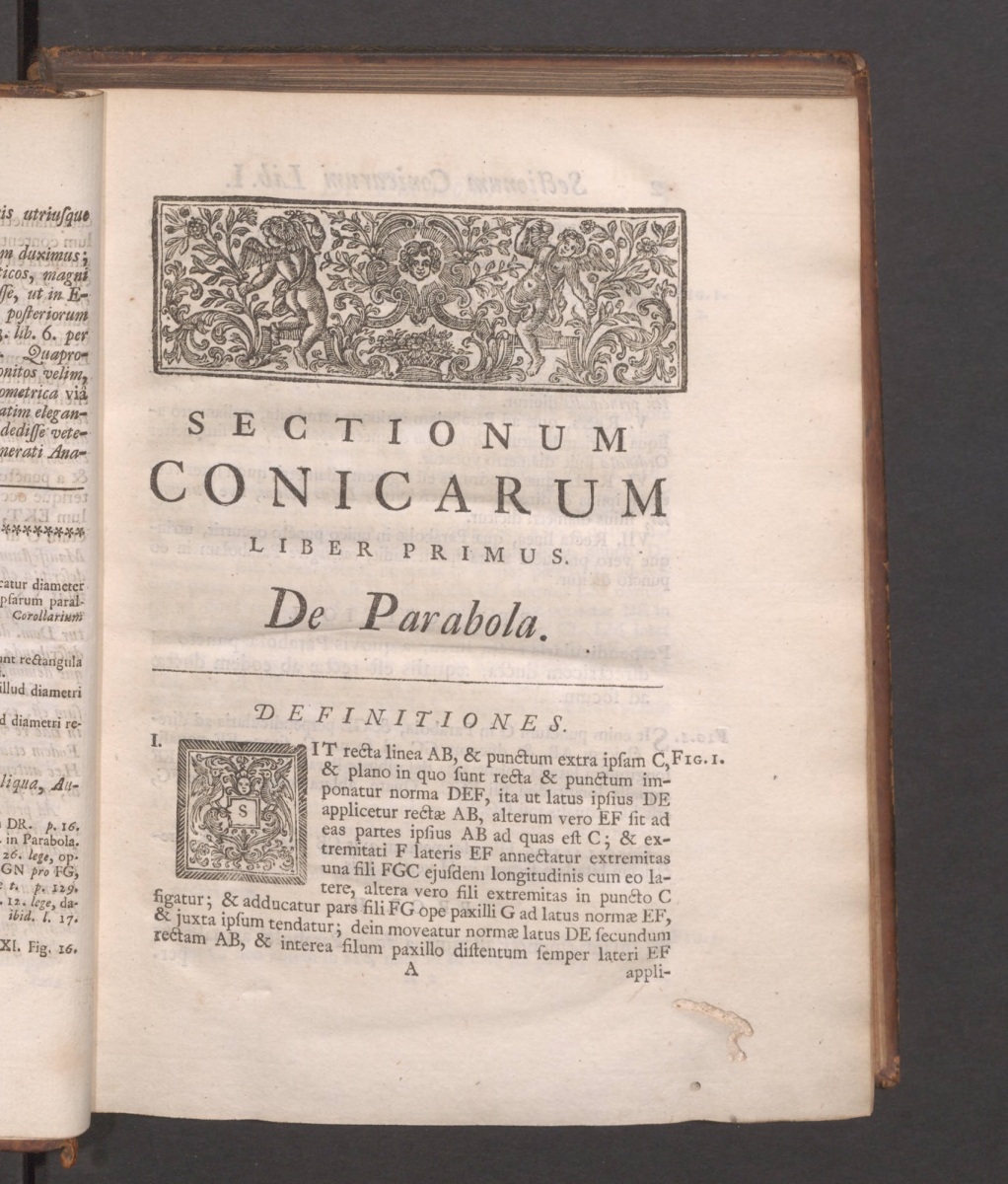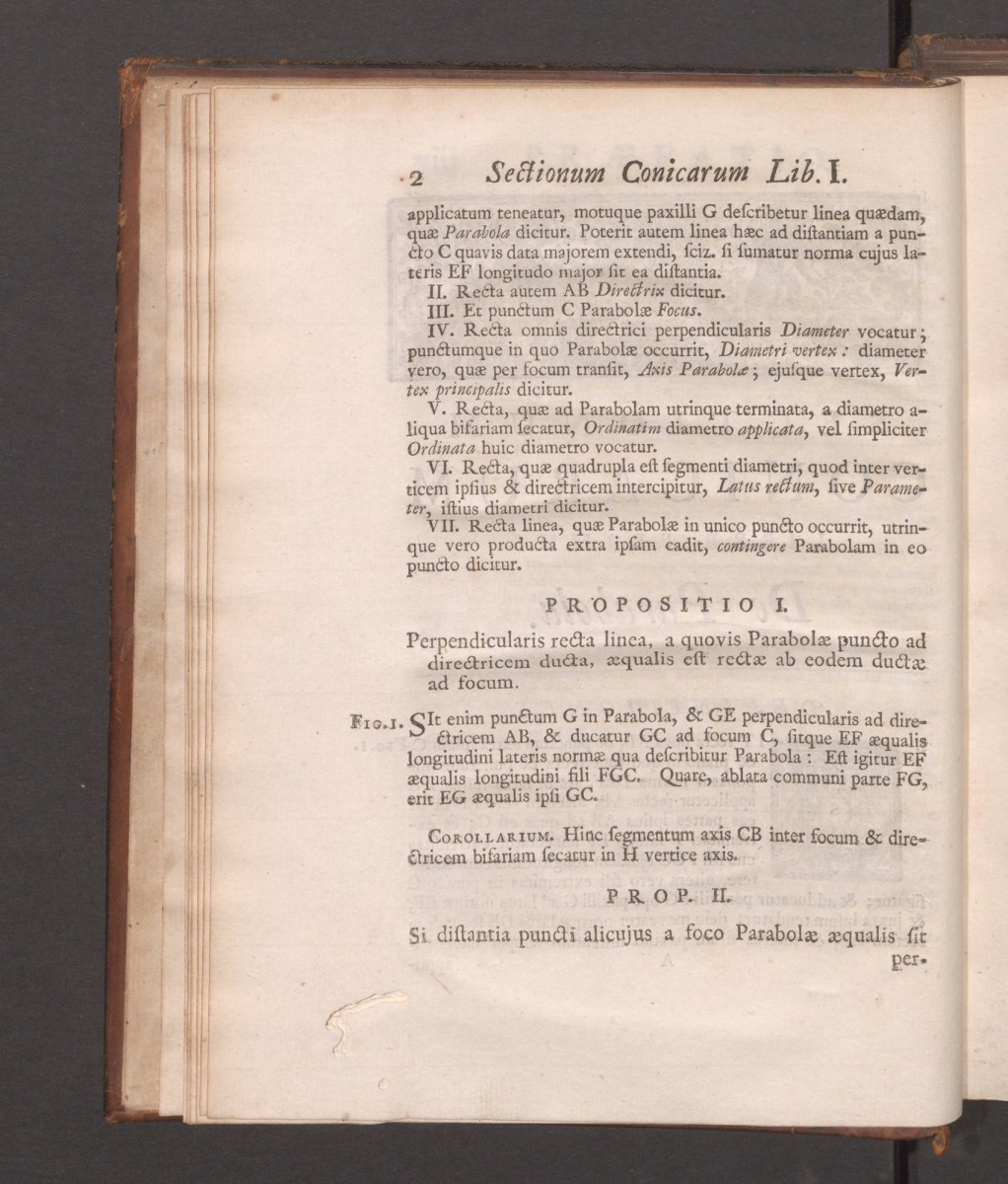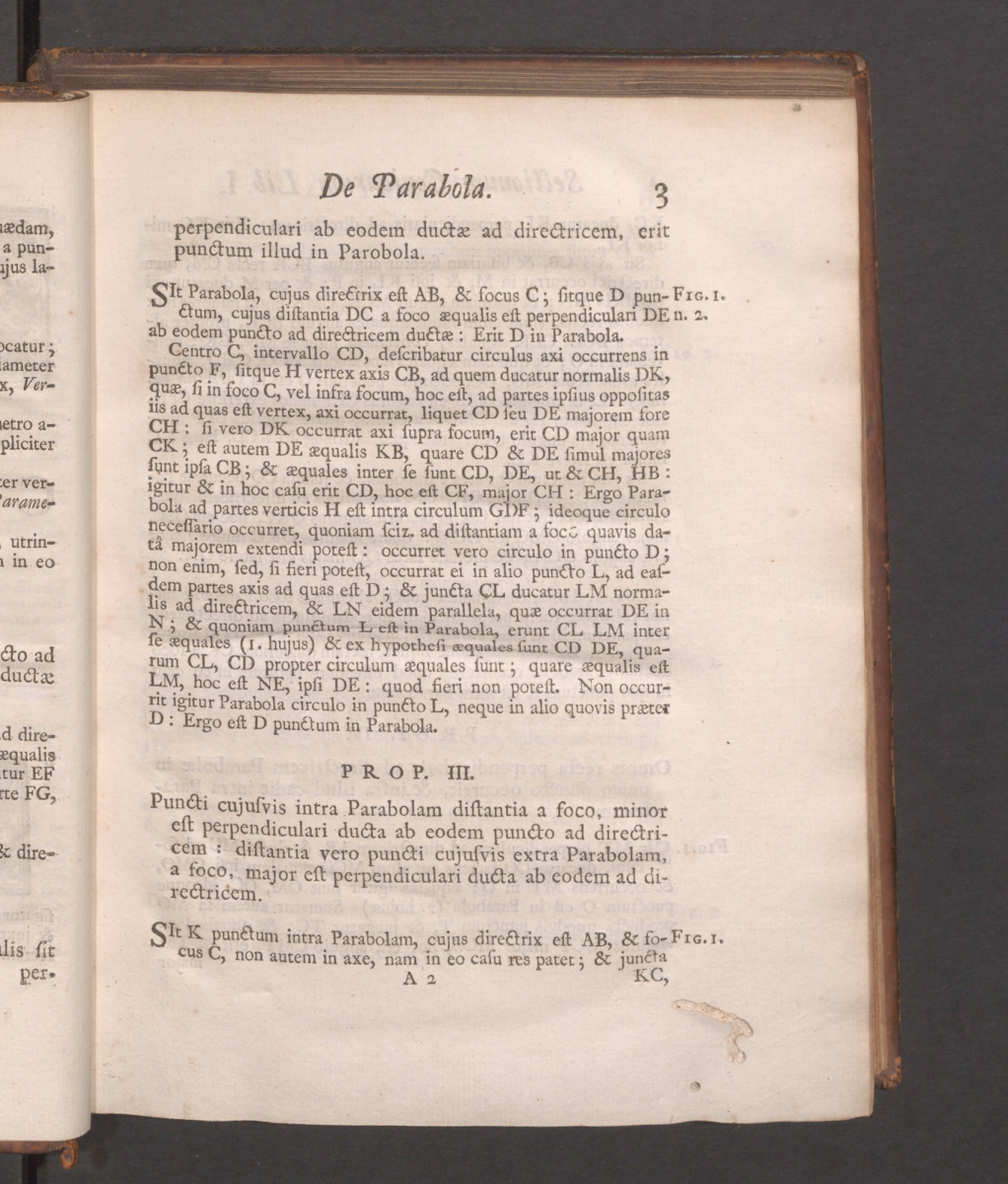- About MAA
- Membership
- MAA Publications
- Periodicals
- Blogs
- MAA Book Series
- MAA Press (an imprint of the AMS)
- MAA Notes
- MAA Reviews
- Mathematical Communication
- Information for Libraries
- Author Resources
- Advertise with MAA
- Meetings
- Competitions
- Programs
- Communities
- MAA Sections
- SIGMAA
- MAA Connect
- Students
- MAA Awards
- Awards Booklets
- Writing Awards
- Teaching Awards
- Service Awards
- Research Awards
- Lecture Awards
- Putnam Competition Individual and Team Winners
- D. E. Shaw Group AMC 8 Awards & Certificates
- Maryam Mirzakhani AMC 10 A Awards & Certificates
- Two Sigma AMC 10 B Awards & Certificates
- Jane Street AMC 12 A Awards & Certificates
- Akamai AMC 12 B Awards & Certificates
- High School Teachers
- News
You are here
Mathematical Treasure: Robert Simson’s Sectionum Conicarum

The image above is the title page of the 1735 first edition of Sectionum Conicarum by the Scottish mathematician Robert Simson (1687–1768). Images from an 1804 edition, which reprints an abbreviated English translation from the Latin, can also be found on Convergence.
From the beginning of his career, Simson’s mathematical interests focused on ancient Greek texts, especially in geometry, with the goal of perfecting the existing editions of works of ancient Greek geometers. This particular book complements Simson's restoration of Apollonius’ Conics, which was completed around the same time but not published until 1749. In both books, Simson used purely geometric methods and avoided using algebra.

Page 1 starts out with a section about the parabola.
In the next images, from pages 2 and 3, we see Proposition 2, which states that if a point is equidistant from the focus and directrix then it is on the parabola. The accompanying Figure 1 is from a fold-out page.



A complete digital scan of the first edition of Simson’s Sectionum Conicarum, call number QA485 .S5 1735, can be found in the Linda Hall Library Digital Collections. In addition, the library has a 1750 Latin 2nd edition (call number QA485 .S5 1750) and a 1792 English 2nd edition, Elements of the Conic Sections (call number QA485 .S51 1792).
Images in this article are courtesy of the Linda Hall Library of Science, Engineering & Technology and used with permission. The Linda Hall Library makes available all existing digital images from its collection that are in the public domain to be used for any purpose under the terms of a Creative Commons License CC by 4.0. The Library’s preferred credit line for all use is: “Courtesy of The Linda Hall Library of Science, Engineering & Technology.”
Reference
Ackerberg-Hastings, Amy. "Mathematics is a Gentleman's Art: Analysis and Synthesis in American College Geometry Teaching, 1790–1840." PhD diss., Iowa State University, 2000. DOI:10.31274/rtd-180813-13933.
Cynthia J. Huffman (Pittsburg State University), "Mathematical Treasure: Robert Simson’s Sectionum Conicarum," Convergence (December 2019)




